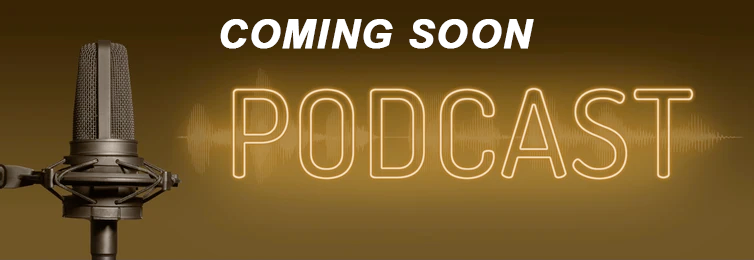
10 Economics Tips for Individuals
Welcome, students! Are you ready to embark on an exciting journey into the world of economics? Whether you’re studying the subject in school or simply curious about how it impacts your everyday life, this blog post is for you. Economics may seem like a complex and intimidating field, but fear not! We’re here to demystify it and provide you with 10 invaluable tips that will help you understand and apply economic principles in a practical way. So grab your thinking caps and let’s dive into the fascinating realm of economics together! Whether your goal is to save money or make informed decisions, these tips will empower you to think like an economist and achieve financial success. Let’s get started!
The definition of economics
What exactly is economics? At its core, economics is the study of how individuals, businesses, and societies allocate scarce resources to satisfy their unlimited wants and needs. It’s all about understanding how people make choices when faced with limited resources. Often times people associate economics with finances but it is so much more then that.
Economics is the foundation of where money meets habits. Let me explain.
Think of it this way: imagine you have a limited amount of money to spend on either a new video game or going out for dinner. Economics helps us analyze the trade-offs involved in making such decisions. Economics also explores concepts like supply and demand, production and consumption, inflation, unemployment, and more.
But economics isn’t just about numbers and graphs; it’s also about human behavior as stated above it can be driven by our daily habits. Often times it is our daily habits the drive our desire to spend resources to meet our wants. Economists examine why people behave the way they do when it comes to buying goods or services. What drives the sale of one item over another and they delve into questions like why prices fluctuate or what motivates individuals to save or spend money.
In essence, studying economics equips us with a unique perspective on how our choices impact not only our own financial well-being but also the overall state of the economy. By understanding economic principles, we can make informed decisions that maximize our utility (or satisfaction) while considering the opportunity cost – what we give up by choosing one option over another.
So remember: whether you’re deciding between two options at the store or contemplating your career path after graduation, having a solid foundation in economics will provide you with invaluable insights into decision-making processes and help guide you towards achieving your goals!
How to think like an economist
As stated previously, Economics is not just about numbers and graphs; it is a way of understanding the world around us. To truly think like an economist, you need to develop a unique perspective that considers both the big picture and the individual incentives at play.
Economists are always thinking in terms of trade-offs, (This for That). Every decision we make involves giving up something else – whether it’s time, money, or resources. By weighing these costs and benefits, we can make more informed choices and drive our own social situations.
Economists understand that people respond to incentives. Whether it’s financial rewards or social pressure, our behavior is influenced by what we stand to gain or lose. Recognizing these incentives helps us predict how individuals and societies will react to different situations.
Another key aspect of economic thinking is considering opportunity cost. This refers to the value of the next best alternative forgone when making a choice. By assessing opportunity costs, we can better allocate our scarce resources for maximum benefit.
Additionally, economists approach problems with marginal analysis in mind. Instead of looking at things in absolute terms, they consider incremental changes or additions. This allows for more precise decision-making based on small adjustments rather than broad assumptions.
Furthermore, thinking like an economist means embracing rationality and logical reasoning over emotions or biases when making decisions. It requires being open-minded and willing to challenge traditional beliefs if evidence suggests otherwise.
Economists are curious observers who seek out patterns and trends in data as well as real-world phenomena. They employ analytical tools such as supply and demand curves or cost-benefit analysis techniques to analyze complex issues objectively.
By adopting this mindset – one that values trade-offs, incentives, opportunity cost, marginal analysis, rationality, and observation –
individuals can apply economic principles not only in their academic studies but also in their everyday lives.
So to start thinking like an economist today! Consider the costs and benefits before making decisions, recognize the incentives that drive behavior, and always be curious about how the world
10 Economic Tips for individual
Now that you have a fundamental understanding of what economics is let’s dive into a few tips that you can use use in your daily life.
1. Understand the Basics: This tip you can all now check off your list, because now you have a basic understanding about economics. While Economics may seem daunting, remember that it’s all about understanding how individuals and societies make choices with limited resources. Start by grasping fundamental concepts like supply and demand, opportunity cost, and inflation.
2. Stay Informed: Keeping up with current events both within the market as well as the government. This is essential for any individual that wants to make smart financial decisions. Read newspapers, follow reputable financial websites, and engage in discussions to stay updated on economic trends and developments. The goal here is simple, to stay in front of the curve.
3. Budget Wisely: This is a topic that I wish they taught more in school. Learning how to budget your money will set you on the path to financial success. Set a budget as soon as you can and stick to it. Track your expenses, prioritize needs over wants, and save a portion of your income regularly. This is essential to stay on a healthy financial path.
4. Invest in Knowledge: Education is an investment that pays off in the long run. Focus on acquiring valuable skills through internships, workshops, or online courses that align with your career goals.
5. Embrace Competition: A healthy competitive spirit can propel you forward academically and professionally. Seek opportunities to challenge yourself and build upon your own financial knowledge. Don’t be afraid to follow the trends. begin to think outside of the box and better the products you use daily.
6. Diversify Your Assets: Once you have found your support system, start by paying yourself first and the way to do that is to invest. Invest financially and put your assets to work for you but remember Don’t put all your eggs in one basket! Spread out investments across different sectors or to minimize risk while maximizing potential returns.
7 . Explore Entrepreneurship: Thinking outside the box can lead to exciting opportunities as an entrepreneur . Consider starting a small business , developing innovative solutions , or freelancing using skills acquired during your academic studies. Sharing your skills is a great way to build your economic success.
8 . Network Effectively: Building a strong professional network is crucial for future job prospects . Attend industry events , connect with professionals via LinkedIn , join relevant organizations such as college alumni associations to expand your connections. By participating in contests or joining clubs related to economics or finance you can find like minded individuals to help you on your quest for financial success.
9 . Think Globally: Understanding international economies is becoming increasingly important in our interconnected world . Follow global economic news , explore study abroad programs , learn foreign languages to broaden your perspectives. Following global trends will help you stay on top of the trends that drive our society
10 . Be Adaptable & Resilient: The economy is constantly evolving , so it’s important to be adaptable and resilient . Embrace change , learn from failures , and keep pushing forward
By applying these economic principles in your life, you’ll gain insights into decision-making processes, become more mindful of resource allocation, and ultimately improve your overall well-being!
Conclusion
Economics is a fascinating subject that has the power to shape our understanding of how the world works. By learning about basic economic principles and applying them in our daily lives, we can make informed decisions that will lead to better financial outcomes.
By adopting an economist’s mindset, students can develop critical thinking skills and gain a deeper understanding of the choices they make. Whether it’s analyzing supply and demand or considering opportunity costs, these economic tips for students are invaluable tools for navigating through life.
Remember, saving money is not just about accumulating wealth; it’s about building a secure future and having the freedom to pursue your dreams. So start implementing these economic tips today and watch as your savings grow!
With knowledge of economics on your side, you’ll be well-equipped to make smart financial decisions that will benefit you in the long run. So go ahead – embrace the world of economics and let it guide you towards a brighter future! Happy saving!

